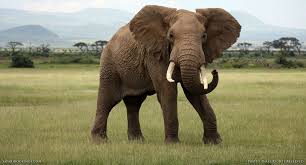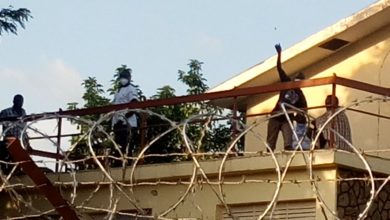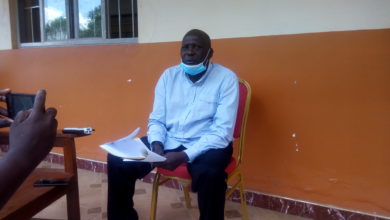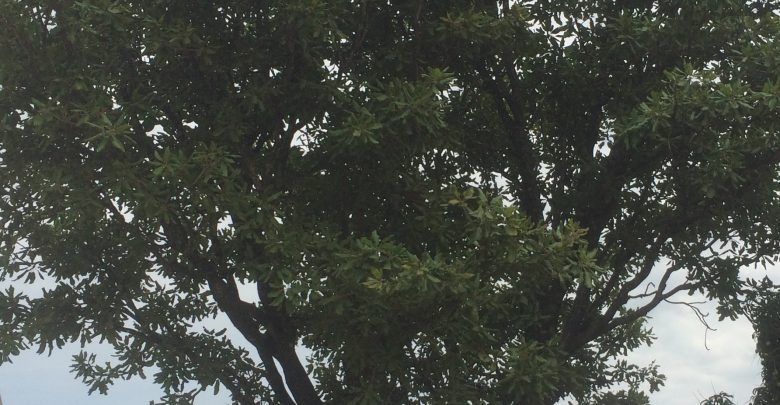
EntertainmentGlobal Politics
UGANDA: SHEA BUTTER TREE FACES EXTINCTION DUE NEGATIVE MEDIA OUTLOOK, EXPERTS
Media in Northern Uganda just run to workshops alluding tangible critical issues
In the late 1990s, the World Market launched the Shea Butter ingenious industry in Lira District; under the COVOL Project they introduced COVOL juss industry.
Uganda Shea Butter is the Shea Nilotica type, which the world market appreciates more for cosmetic use, due to its higher oil component as opposed to the West African Shea Butter which is harder and preferred for Chocolate industry.
By Okumu Livingstone Langol,( the Guardian News)
GULU CITY-MONDAY APRIL 29, 2024.
Sandra Auma Labeja is a seasoned Shea Butter trader is also the co-founder of Las’ Café.As she chats with the ice cream and coffee clients; it is difficult to imagine that this very spot is one of the region’s most vibrant spot for pick-up spots for raw shea butter Nilotica.
What are really the major constraints in the Shea Butter tree in the northern Uganda region, with the Shea Butter tree becoming an endangered species?
Sandra has been marketing shea butter since her University days. She says that neglecting the shea tree is a waste of our business opportunities, culture and growth, considering that this tree can fruit for 250 years. Wasting the tree, wastes 4 generations of economic sustenance for our children and their children, and this is sad.
Before that, let’s look at the case of the media comparing, if you are part of the media campaign, how the media fought in Adilang village, Agago district when the exposed Shea tree invaders endanger effort. The media rebottled Shea trees degradations who were cutting Shea tree for charcoal until it became a national political campaign.
Why is the media quiet at the moment, not even bothering to fight the war on Shea tree environmental mitigation? You know, I did a story of one of your media writers; I raise the issue of environmental degradation on Shea trade and not over man’s struggle.
What would be the cost effective means?
The intervention should be a multiple approach project move; no one person can make changes alone – the community must play their role, how can you let your children cut the shea tree, that’s madness.
We can cut other trees for charcoal, this means the community is not doing their cordial responsibility, for a community who does not use charcoal for cooking, what desperate thing forced you to cut Shea tree for charcoal?
For a person having mental illness, even a charcoal trade has a role to play, with all the opportunities in Shea trees, there are so many things you can do in Shea tree apart from the charcoal business, including tourism trade, in oil including profiting. Why someone decide to cut the Shea tree, if traditionally that is not witches
May perhaps you give and explain in depth the core value and the rationality behind Shea tree?
The value that comes from Shea tree butter Shea trees. Shea tree can be used as herbal medicine remedy, unfortunately you are poisoned by administering through skin attachment, Shea butter oil stops the penetration of the poison into your skin transmission, this happens when you have used Shea Oil and ointments.
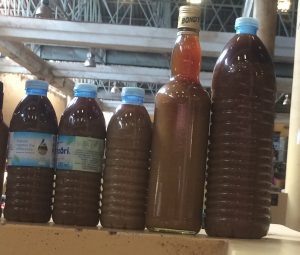
Photo by Okumu Livingstone Langol
Shea butter the pulp when dry and preserved later can be mixed with Shea oil, and can be eaten during cultivation, and the prepared vegetable meals can consume, is so delicious with cock pigeon peas sauce, (dekngor)
Shea oil is mixed with vegetables to give food value and great taste, and Shea butter also sold as skin care, the entire range of body care ointment for lotion for hair beautification.
Explained the rationale of Shea butter for the world market?
Even though moo yaa is an indigenous Northern Uganda crop, it was launched on the world market when the COVOL project came to Lango in early 1990s by introducing the cold press technology in Lango region of Uganda. Northern Uganda’s Nilotica shea butter is highly demanded on the world market for its uniqueness.
For me the phase we set is the phase the world can follow, it can start with us by an act as simple as protesting use of charcoal made from the shea tree.
Our tree is endangered because we relaxed on the abuse in the past few years. If we feel depleted as a region, it is because we have set the pace; if we want our shea tree resources to be treated with respect, it starts with us.
Betty Ocwee, from Palaro Sub County, a social activist on Environmental degradation in Acholi Sub Region also criticized the media fraternity for not doing more in the fight for Environmental justice in the region.
Her complaint against the media is that at the beginning when the scavengers from South-Western Uganda descended to destroy forest coverage in Acholi Sub Region on a big scale, the Media were lukewarm. Her argument is because a number of Media outlets in Acholi or Northern Uganda are majorly owned by the state.
Ms. Ocwee criticized the registration that in Palaro Sub County, Gulu District about 10 square kilometers of shea butter trees was destroyed by the businessmen who hailed from South-Western Uganda, while the issues never caught the attention of media.
“When we raised the alarm that the charcoal burners are cutting trees including shea butter trees in Palaro Sub County, few journalists from Northern Uganda Media Club, NUMEC came and reported the incidences and even national television both private and government own, Uganda Broadcasting Cooperation UBC reported charcoal businesses. But, after a while, there is total silent.” Ocwee commented.
Christopher Oruka, from Owoo Sub County, Gulu District. Who is one of the advocates against environmental mitigation? Decry of poor media coverage on tree cutting from Acholi Sub Region, the worst when you called for a media conference at the scene of crimes. Journalists say unless the press conference is to be addressed in their office.
“When you call for the journalists to cover the function when we have arrested the charcoal trucks, journalists want you to pay them money for them to go and cover the incident. A number of times I have reported and called for journalists, I even went to their office NUMEC. I was asked to give them facilitation, once you don’t give them. They will not go.” Oruka, an environmental activist, argued.
Angwen Lilly, a food vendor in Atanga Township, says in a day she could use five liters of Shea butter oil due to high demand on shea butter oil on a daily basis.
“This period, May to July, there is more supply of shea butter production. But, as the community embarks on farming, the demand dwindles because the community is busy on their farm. To me, who is running a hotel in the center here? Sometimes shea butter fails to bloom because by nature, shea trees also behave like live human beings, they also get annoyed as many trunks of shea tree are cut down, and we feel the impact when there is no harvest of shea butter in that particular season.” Angwec Lilly commented.
Santa Oyella, 40 years old, one of the shea butter oil traders in Atanga Township, Pader District revealed that for generations, the Acholi community before the advent of the British Colonial power, they were using shea butter oil in many ways, they use shea butter for cooking, for lotion, for traditional enthronement of chiefs and also as a main butter trade inter tribal business.
Adding that currently shea butter oil is sold in the open market, a kilogram goes at UGX 1,000 or 1,500 the raw nut, but a liter of shea oil in Atanga Township, is sold at UGX 10,000 per liter at the moment. But as time goes, the price of shea butter also hikes up to UGX 30,000 during the dry spelt.
The money they get from selling shea butter oil, help them to pay school fees, and buy household items. But, due to heavy shea butter trees destruction by the foreigners who track from South-Western Uganda, many Baganda and Banyankole, shea trees cutting has caused catastrophic damage in the areas where shea trees used to be.
The challenges they are facing, sometimes, and some season shea butter trees do not flower, which means there is no production of shea butter oil for that period. This is due to the curse Acholi elders spell on the community.
Because it is the people within the community who sell the shea butter trees for the charcoal and logs business men.
As a result of the heavy destruction of shea butter trees cutting, the elders of Acholi Ker Kwaro Payira has levy penalty on the person caught cutting shea butter trees, because the taboo, he or she is suppose produce cow and a goat that will be slaughter for shea butter trees to be in production.
Another benefit of shea butter trees also used for wind vane, during heavy downpour storms, shea butter trees stop winding not to destroy crops plantation. And also the beauty of shea butter trees, you can do cultivation under shea trees, it will not affect the growth of crop’s yield.
Khamba Amir, Gulu City, Deputy Residence Commissioner warns the media not to be cowed down as they face challenges, I want to address you on this great International World Press day on regards to Environmental day.
“Harassment and intimidation power of journalists is to promote environmental challenges through reporting struggles to cover complex information to the community.”
We recognize the power of journalism in reporting environmental justice, we should not forget dear members, what will destroy the world is environmental degradation; the world without the environment is good as nothing.
I need to thank you amidst challenges the media should carry on reporting.
Robert Okello, 48 years old. Elder from Payira Chiefdom confirmed to the Guardian News, that the members of council of chief have come up with the bye law that has been put on ban on shea butter trees cutting. Whoever found cutting shea butter trees is fine under traditional norms he has committed taboo.
“Whoever, found cutting shea butter trees he will fine one cow and a goat which will be slaughtered for ritual ceremony. Because he has caused bad omen in society.” Robert Okello remarked.

